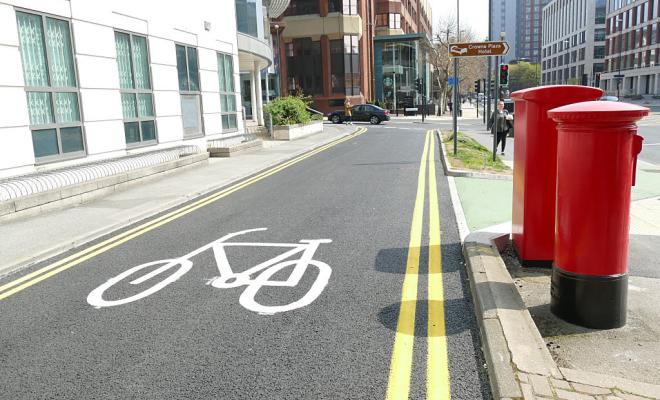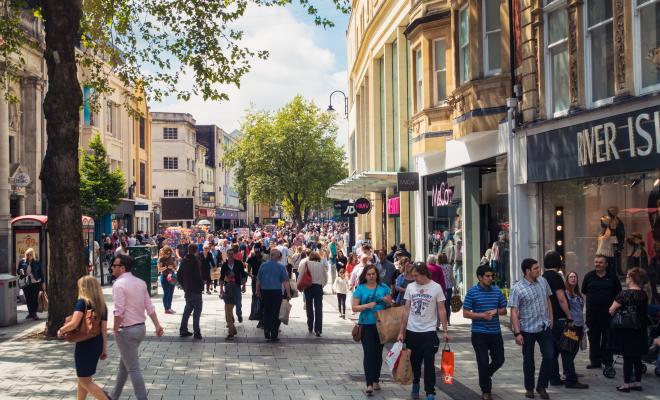25 Sep 2024
Councils, climate and housing
Residential housing is responsible for around 22% of UK greenhouse gas emissions, most of which is due to natural gas used in heating.
What’s more, the energy efficiency of the UK’s housing stock is very poor, with only a third of homes well insulated. Millions of households are already in fuel poverty, and many more people will struggle to pay bills and stay warm in winter due to the 2022 energy crisis.
While the government is yet to publish a comprehensive strategy for dealing with the energy and cost-of-living crises, there are plenty of ways councils can help tackle these issues:
- Ensure all council-owned homes have high energy efficiency standards through the installation of heat pumps and high levels of insulation.
- Cut emissions in other council-owned buildings by improving energy efficiency and installing renewable energy.
- Provide advice to homeowners on how to improve energy efficiency and help with accessing grants, and work with energy companies to help vulnerable households with energy efficiency measures.
- Use their enforcement powers in the private rented sector to help improve standards. They can impose fines on landlords that don’t meet legal standards and incentivise landlords to go over and above the legal minimum.
- Use their planning powers to ensure that new buildings are low or zero carbon, which could also help provide training and jobs for people in your local area. Zero carbon buildings maximise energy efficiency and use renewable energy sources to provide for the remaining energy demand.
- Ensure new buildings or alterations that are subject to Building Regulations are carried out properly and that energy efficiency standards are followed.
- Develop a heating and energy efficiency strategy for the area to ensure a joined-up approach including skills training.
The target
Councils need to show ambition on a par with the climate and cost-of-living crises. With existing resourcing and powers, a reasonable target for councils to aim for is:
To ensure all homes are well insulated to a minimum of Energy Performance Certificate (EPC) level C by 2030 and make a proportional contribution to the 1 million eco-heating heat pumps that need to be fitted in the UK each year.
Councils need to be given more power and funding from central government to deliver street-by-street insulation to all homes. Find out more about how your group can campaign on this by visiting our United for Warm Homes coalition website.
Challenges
Frustratingly insufficient and fragmented funding and a lack of power in some areas means it’s hard for councils to play their full part in ensuring high energy efficiency standards in all homes. Friends of the Earth is calling for a government funded street-by-street programme of insulation led by councils. In the meantime, there are still measures councils can take (using existing funding and resources) to help reduce emissions and tackle the problem.
The other major challenge lies in replacing gas-fired central heating in people's homes. The Climate Change Committee (which advises government) has said that this should be achieved primarily through fitting 5.5 million homes with heat pumps by 2030, rising to 12 million by 2035.
Friends of the Earth advises a more ambitious target of 10 million heat pumps by the end of 2030 to cut carbon emissions more quickly. So far, the government has only committed to fitting 600,000 heat pumps a year by 2028.
Councils leading the way
Some councils are already making strides to end fuel poverty and improve our housing stock. Share these examples with your council using this template email and help inspire them to take action.
Reading Borough Council has used its planning powers to include a policy in its Local Plan requiring new residential developments of 10+ homes to be built to zero carbon standards (by minimising energy use and using renewable energy supplies) if possible.
North East Derbyshire District Council is installing external wall insulation at 324 council-owned homes in ex-mining communities. The council expects this will save residents £92,700 per year (an average of £286 per household) through lower energy bills. The scheme is also expected to deliver carbon savings of 343 tonnes a year.
Liverpool City Council has mapped the energy performance of privately rented homes in the city and is targeting landlords in areas with the worst EPC ratings (F and G, which are below legal standards), encouraging them to make improvements and issuing compliance notices to those that don’t.
Learn from others
From autumn 2022 grassroots groups across the country will be forming local hubs as part of the United for Warm Homes campaign and working together to make energy bills affordable for everyone.
Some groups have already been working within their communities to combat the issue. For example, Faiths for a Fair Low Carbon Future (Project 4F) has obtained funding to carry out its own "Faith Building Energy Reduction" scheme. The scheme will include whole building energy assessments for heavily used faith buildings with high energy use, which will be carried out by an experienced energy assessor. Opportunities for reducing energy use and bills will be identified, and small grants issued to carry out initial changes.
The group has also launched its own household fuel bill advice and support forum within the community, offering:
- Practical support for faith community members who are facing difficulties paying fuel bills and keeping warm.
- Free, impartial advice not aligned to a particular energy company.
- Help for faith community members to become more confident and take control of their own energy bills.
Could your group do something similar?
Convince your council
If you’re keen for your local authority to work on reducing energy bills and emissions, then one of the best ways of convincing them to prioritise it is by building alliances with others in the community and demonstrating the public demand for action.
Authorities are more amenable to introducing schemes that have a wide array of benefits, as it generally means they’re more cost effective. If you’re in contact with your local authority about home heating, make sure to highlight the co-benefits of focusing on things like street-by-street insulation and retrofitting insulation. They include:
- cutting emissions
- improving health
- reducing resident’s fuel bills
- helping vulnerable communities. For example, Barnsley Council says fitting rooftop solar panels to social housing has gained support from residents hard to reach before, and has already saved a collective £278,844 for tenants on electricity bills.
Energy efficiency schemes could also lead to increased job opportunities, with local people trained and employed in areas like retrofitting and low-carbon construction.
For example, City of York Council is offering conversion courses that help local gas engineers work on heat pumps, and Greater Manchester Combined Authority estimates that upgrading buildings to boost their energy efficiency could potentially create 55,000 jobs in the region by 2040.
Councils don’t have to undertake energy efficiency schemes alone. By working in partnership with others, they can access different funding schemes and create well-rounded climate interventions.
For example, Hastings Borough Council joined up with neighbouring councils to set up the East Sussex Warm Homes Check Service, which gives free advice and support on making homes more energy efficient to owner-occupiers and people who rent privately.
Funding and powers
Action by central government will empower councils to do more. Councils can and are acting now, but it’s hard to find a council able to act across all the areas they need to and at the scale and pace commensurate to the climate and ecological emergencies. That’s why they need additional powers and resources. Central government can help by:
- Providing urgent funding for street-by-street insulation to be delivered by councils.
- Providing long-term stable funding to councils for an ongoing retrofit programme.
- Reforming planning rules so that all planning policies and decisions must align with climate targets.
- Ensuring councils have sufficient powers to enforce energy efficiency standards in the private rented sector.
- Ensuring there's a skilled workforce to carry out retrofits at the scale needed.
Friends of the Earth has joined local government organisations, academics and other NGOs in setting out a Blueprint of what’s needed from national government to support councils in key policy areas, including retrofitting and planning. The coalition has assessed how the government is doing so far in its progress tracker. Be sure to ask your council to sign up to the Blueprint if it hasn't done so already.
Helpful resources
Find out what progress your local area has already made on this topic with our data tool, “Near you”.
Watch our training video and learn what your council can do to improve energy efficiency in homes:
Find out how you can build a strong campaign to push your council to take ambitious action in this area.
Read more examples of best practice by councils.
Find out how your council is doing by looking at its Council Climate Action Scorecard, created by Climate Emergency UK.
Learn what central government should be doing to improve our housing stock and tackle the energy and cost-of-living crises.
Find out if your area is an energy crisis hotspot.
Any references to national policy in this guide relate to policy under the previous government and reflect the policy context at the time it was written.



